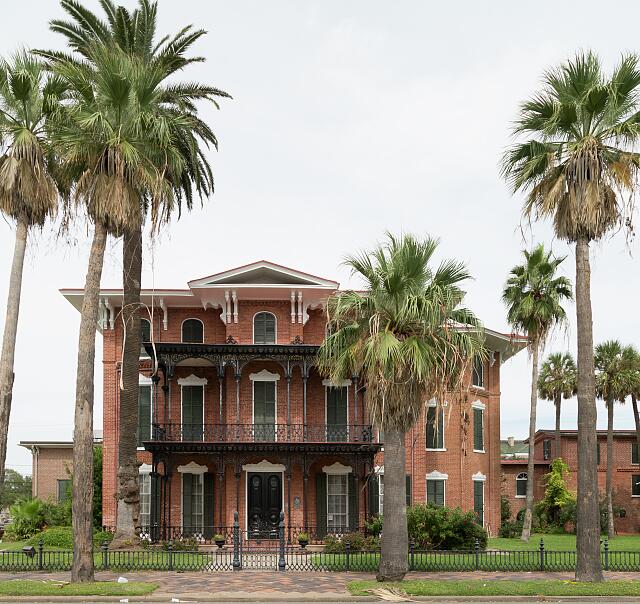Marking the 1865 date when enslaved people in Texas learned of their freedom, June 19 has long been celebrated with barbecue, rodeos, parades, and more.
It’s known as Juneteenth in Texas, where it has been an official state holiday since 1980, but Black Americans have honored and rejoiced in the occasion — also called Freedom Day or Jubilee Day — for more than a century and a half.
Last year in Texas, it was marked with barbecue cookoffs, parades, festivals, concerts, golf tournaments, educational programming, poetry slams, brunches, marches, stage plays, spoken-word performances, various combinations of these events, and more. This year, the pandemic has affected how people celebrate, but there are nonetheless drive-through celebrations, walks, music and arts festivals, and plenty of virtual events.
 Ashton Villa, where General Order No. 3 was read on June 19, 1865.
Ashton Villa, where General Order No. 3 was read on June 19, 1865.
The tradition dates back to June 19, 1865, when 2,000 Union troops landed in Galveston Bay in Texas and Gen. Gordon Granger publicly read General Order No. 3.
The first words of the missive shocked and amazed the 250,000 formerly enslaved people of the state, who had not yet received word of President Abraham Lincoln’s Emancipation Proclamation two a half years earlier:
“The people of Texas are informed that, in accordance with a proclamation from the Executive of the United States, all slaves are free. This involves an absolute equality of rights and rights of property between former masters and slaves, and the connection heretofore existing between them becomes that between employer and hired laborer.”
Imagine the scene. As people learned of their new liberation, spontaneous celebrations broke out across the state.
Celebrations of the anniversary date back to the very next year and continued throughout the 19th century as Black families and friends marked the date with pig roasts, fishing, baseball, rodeos, prayer gatherings, political rallies, and speakers emphasizing the importance of education and self-improvement.
Observance of the holiday declined somewhat in the early 20th century for a host of reasons, but the civil rights movement brought about a revival and recognition of the date’s significance. Today 46 other states and the District of Columbia have followed Texas’ lead in recognizing Juneteenth as a state or ceremonial holiday for its social and historical significance, and a push to make June 19 a federal holiday is gaining momentum.
Photography: Images courtesy Public Domain Review, Library of Congress, Wikimedia Commons



















